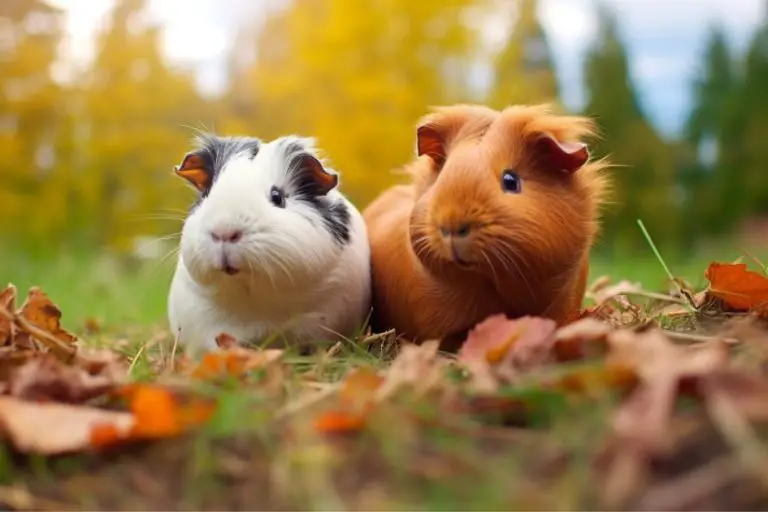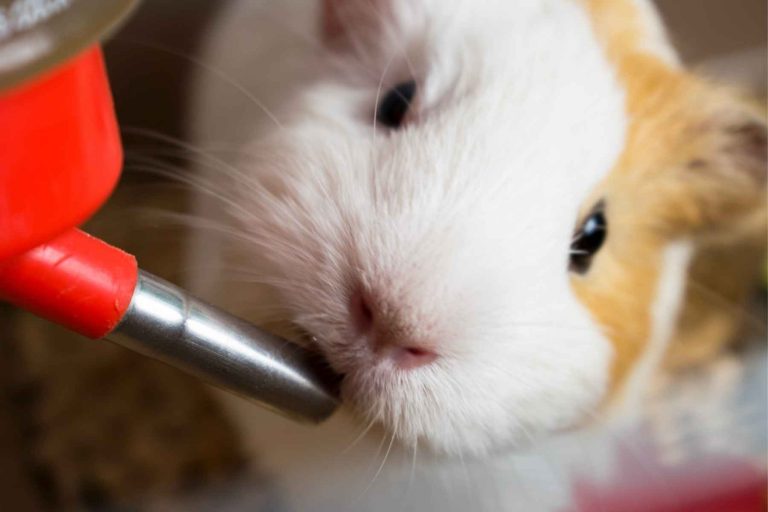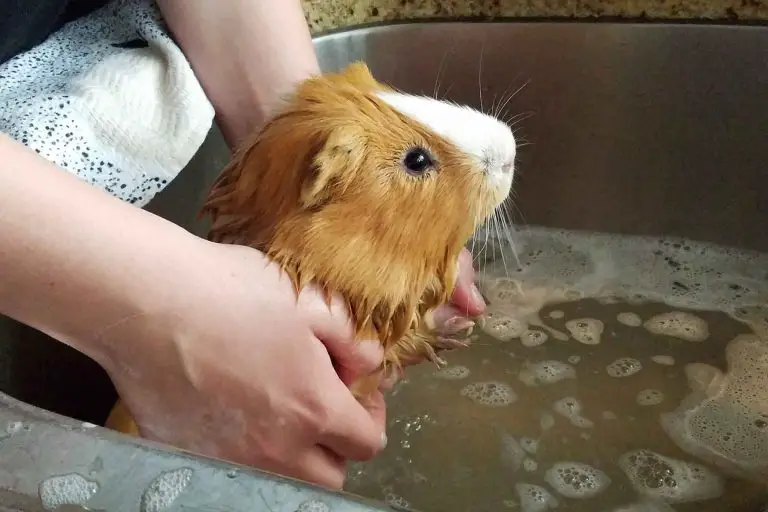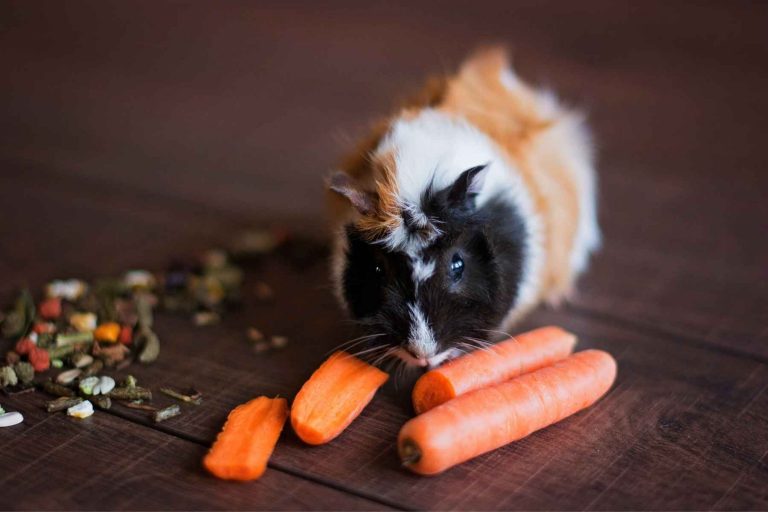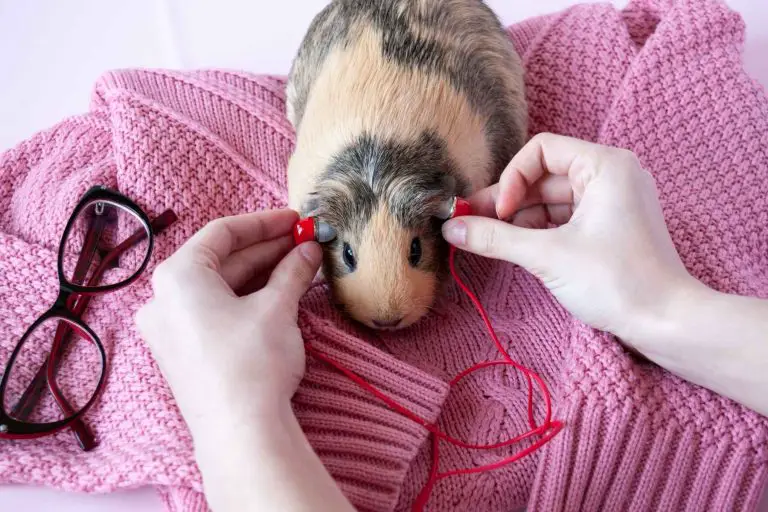Do Guinea Pigs Bite?
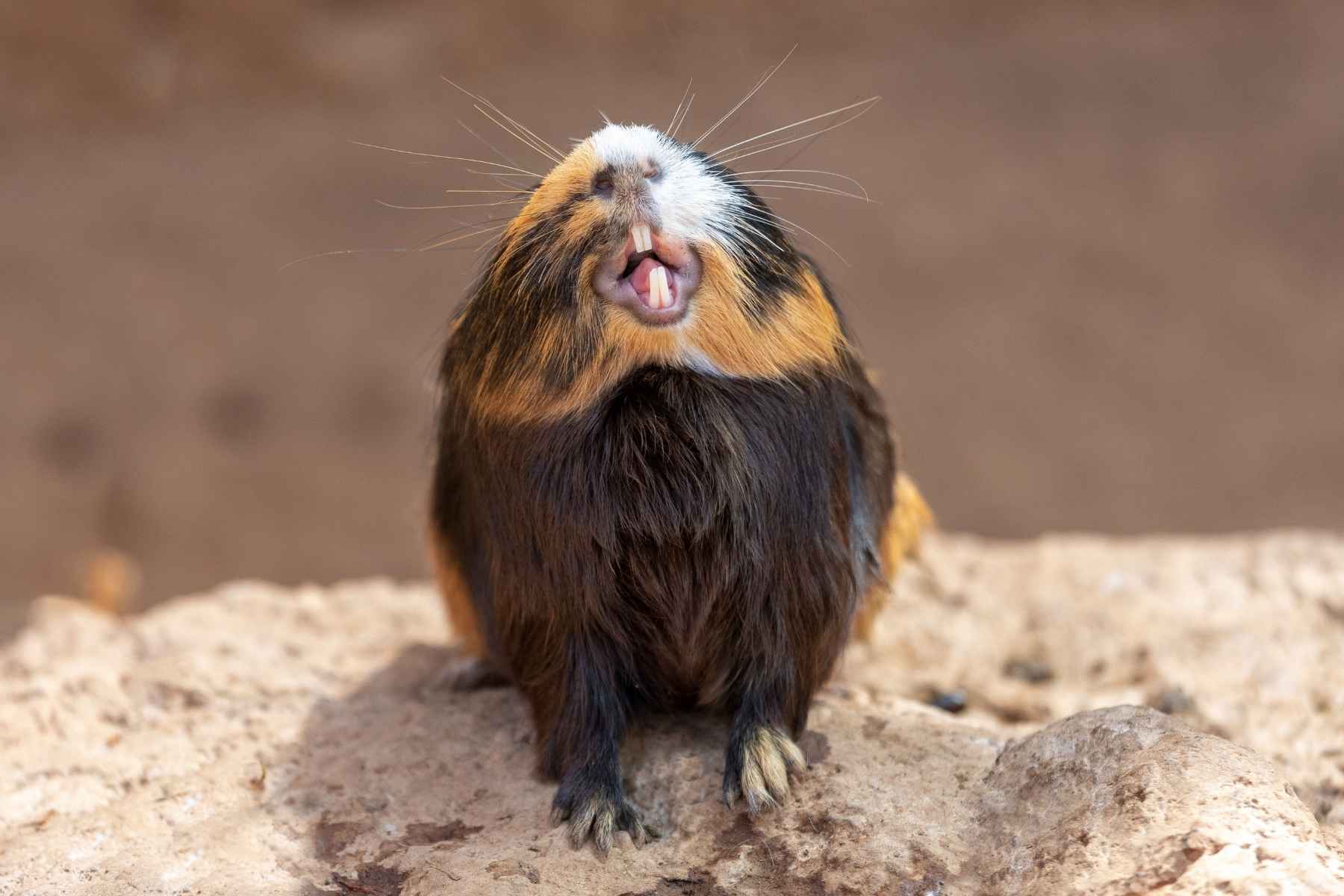
Guinea pigs are popular pets, and these lovable litter chatterboxes can form lasting bonds with their humans. While they are typically gentle-natured creatures, if properly handled and you earn their trust over time, they can deliver a painful bite if provoked.
Guinea pigs are capable of biting but generally do not bite unless they are scared or defending their territory. Other reasons include mistaking an owner’s finger for food, lack of socialization, and underlying illness or injury. Being mishandled or held against their will can also result in a bite.
Cavies are sweet-natured and will often ‘tell’ their owners if they are not happy. While male-on-male guinea pig aggression is common, a cavy is not likely to bite unless there is an underlying reason. Please read on to discover why guinea pigs bite and the tell-tale signs to watch out for if your cavy is stressed or angry.
Why Guinea Pigs Bite
Your Guinea Pig Is Frightened
Your cavy is first and foremost a creature of prey and does not respond well to unfamiliar surroundings or sudden movements. If you frighten your cavy and they have no means of escape, they might react with aggression based on fear.
They may perceive your behavior as a threat, especially if startled or handled by unfamiliar humans. Avoid handling your guinea pig when there are unfamiliar triggers in the environment, such as loud noises or children running in your home.
Guinea pigs also react to earlier traumas that they associate with pain or anxiety. Besides the cavies’ genetic predisposition to remain alert to potential predation, they can also exhibit fear-induced aggression due to their life experiences and early socialization experiences.
Signs that your cavy is frightened include:
- Fidgeting
- Lowering its head and ears from touch
- Freezing behaviors
- Shivering
- Short higher-pitched purring ‘drrr’ sound.
Your Guinea Pig Is Angry
Guinea pigs often exhibit terrestrial aggression towards other male cavies, and their aggression will escalate to biting if their opponent does not show submission. Usually, you can diffuse these situations by monitoring the initial displays of aggression.
The classic vocalizations that may alert you to their aggressive or angry mood are teeth chattering. They may also make a whining noise accompanied by a rapid clicking of their teeth. This sound warns other cavies or an encroaching human that they are readying themselves for a potential bite.
If you learn to read your cavy’s distress signals, you are more likely to avoid your cavy’s aggression in the form of a painful bite.
Other signs your guinea pig is angry include the following:
- Raised head
- Raised fur
- Hissing
- Strutting
- Baring of the teeth.
Your Cavy Shows Aggression From Lack Of Companionship
Your cavy is a social creature and will suffer when kept without a guinea companion to communicate with or cuddle up with for warmth and security. Although they may survive, they will be deprived of one of the defining features: their social need for the company of their own kind.
These happy little creatures will live in muddles of ten or more companions in the wild. When you keep one alone, they can experience loneliness, stress, and behavioral problems such as aggression and biting behaviors. Their health and longevity are also affected by loneliness.
The cavies’ need for same species companionship is actually so innate that Switzerland made it illegal to only own one! The best is a male-female pair to prevent male-on-male aggression. You should also ensure the male is neutered at least six weeks before placing them together.
Signs that your cavy is lonely also include:
- Lack of appetite
- Lack of interest in toys/activity
- Biting at the bars/hiding behaviors
- Constant calls for attention.
Your Guinea Pig May Mistake Your Fingers For Food
If your cavy is anything like mine, they will absolutely adore their food and whistle up a storm come feed time. If your furry friend is hungry and you extend a finger with their fave snack, they might give you a nip due to sheer enthusiasm and not malice.
Also, your fingers may carry the scent of the yummy food you are handling, and your cavy just wanted a little taste. One should avoid sticking fingers through your cage bars during feed time as they may consider the finger their treat.
You Are Handling Your Guinea Pig Incorrectly
Cavies make affectionate and gentle companions, but you can only earn their trust with patience and loving care.
If your cavy is new to your home environment, their natural instincts are to protect themselves from potential harm. This trait is genetically hardwired into your guinea pigs’ behavior as they are prey animals and alert to potential threats.
It would help if you accustomed your cavy to handling gradually by first allowing them to accept your stroking and move progressively towards picking up your furry friend. Always begin holding your cavy close to the ground where you can easily put them down if they grow stressed by your handling.
Please take note of stress behaviors and only hold your cavy when it is relaxed and calm to be held. Always support both the chest and the hindlegs so that your cavy feels secure. Pay attention to
vocal or physical signs that your cavy no longer wishes to be held.
Signs your guinea pig no longer wants to be held include:
- Fidgeting
- Chattering or hissing
- Throwing back the head.
Your Cavy Is Ill Or in Pain
Your guinea pig can’t explain if it is feeling and may act aggressively by biting its handler if they experience physical pain. Your cavy might have an illness or a physical condition that makes handling their bodies extreme discomfort.
Your cavy might have an injury that you are unaware of or a condition that causes sensitivity to touch. Your guinea pig might resort to a bite to tell you that you are hurting them.
You should constantly monitor your furry companion for tell-tale signs that they may be ill or in pain. A clear sign of pain is flinching away from human contact, especially if it is a change in your cavy’s usual behavior.
Other symptoms of pain include:
- Listlessness and inactivity
- Rapid and shallow breathing
- Lack of appetite
- Hunched/shivering posture
- Raised fur
- Grinding teeth
- Squealing.
Your Male Guinea Pig Is Aggressive To Other Male Guinea Pigs
A clinical study conducted over five years found that a pig’s upbringing affected the levels of sexual aggression when in the presence of a fertile female.
Guinea pigs raised in larger mixed colonies showed low-stress reactions and low aggression when faced with an unfamiliar female. The guinea pig raised with only a single female companion showed high aggression and high-stress levels.
When two male cavies are housed with one female, they may exhibit territorial aggression towards each other. Baring of the teeth is a classic sign of aggression, and if the other male cavy does not back down, it can escalate to non-sexual mounting and biting.
How To Stop A Guinea Pig From Biting
Guinea pigs may nip their owners with a close-toothed mini bite that is more of a pinch than an actual bite.
However, if your guinea pig exhibits biting behavior, you should consider the following.
- Seek veterinary advice. If your cavy presents signs of illness or pain, and the biting behaviors are a change in your cavy’s behavior, you should eliminate underlying physical causes by a veterinary visit.
- Monitor your guinea pigs’ body language and vocalizations. Your cavy will let you know when they feel unsettled or stressed by chattering, hissing, or raised fur.
- Use positive reinforcement to win your cavy’s trust. If you have a new cavy companion, you will need to progress slowly to earn their trust by using positive reinforcement and gentle persuasion. Never tap your cavy’s nose or shout, further encouraging fear-based aggression.
- Find your cavy a companion. If your cavy is alone, consider finding an opposite-sex companion. Loneliness can cause stress and destructive behaviors in your cavy.
- Hold your cavy correctly and be alert to their body language. Always hold the chest and hindquarter area to make your cavy feel secure, and look for signs of squirming, chattering, or unease to know when to set your cavy down.
- Don’t handle your cavy if they are stressed. Avoid picking up your cavy if there are loud or unfamiliar noises in the environment. Your cavy may respond with a bite out of fear.
- Be patient with a new cavy. Guinea pigs take time to learn trust in their humans, and you should never rush to handle a new cavy. Start with gentle stroking and treats, and your pet will let you know when they are receptive to being handled.
Closing Thoughts
Most guinea pigs are a pleasure to have as a companion, with their songs and whistles forming part of the fabric of your home.
Often, your cavy is not the one to blame for biting behaviors, and it’s up to you to discover the cause and rectify it with positive reinforcement. The pop-corning alone is worth all the love and effort.

